We believe that landscape and architectural design are meant to come together as integrated as well as opposing elements. It is this contradiction between the two that enriches the experience of the other. Landscape design is not a garden to be merely observed. It is a part of the house or building, an extension of the inside, often a room without walls. It enlivens the architecture, it creates variety in design depending on the regional and local context. Often for the landscape to make a dramatic impact bold interventions are needed in the initial conceptual planning and thought process of the project. What may in the end seem natural is often the outcome of surprisingly intensive interventions.
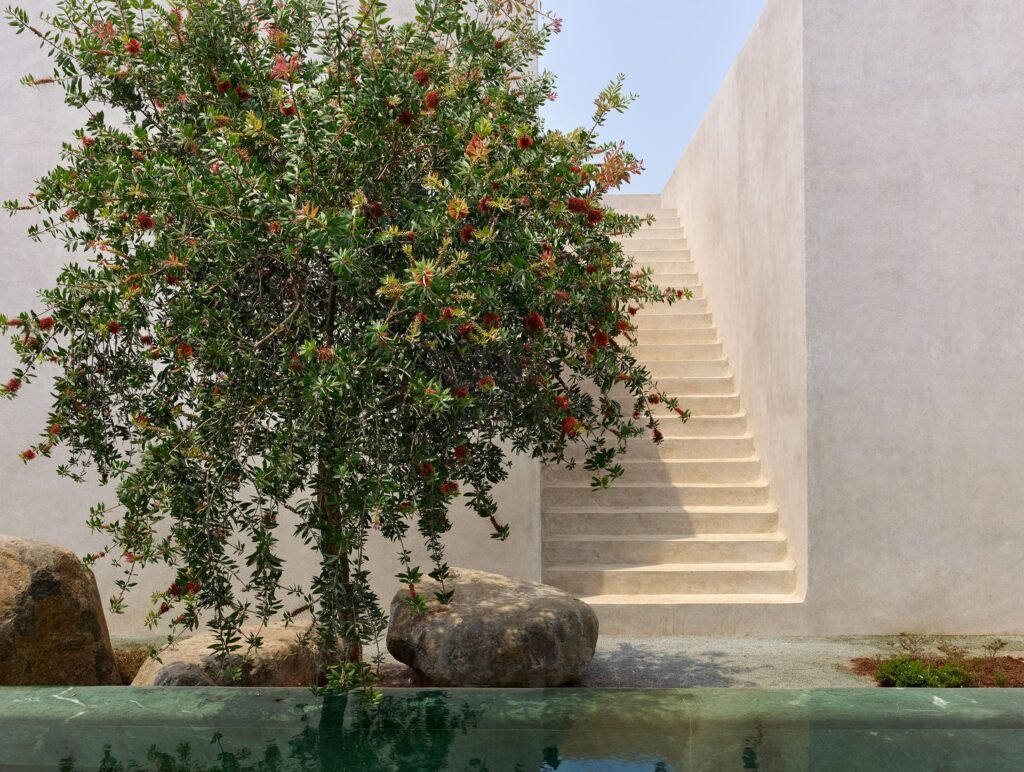
While DUA Villa extends across more than 2000 square metres, it isn’t its scale that captivates. What stands out instead is its quiet confidence—an unspoken reverence for nature that permeates every corner. The villa doesn’t shout for attention; it gently celebrates the essentials: light, air, and the generosity of the land, all while nodding to the beauty of mystery, simplicity, and restraint.
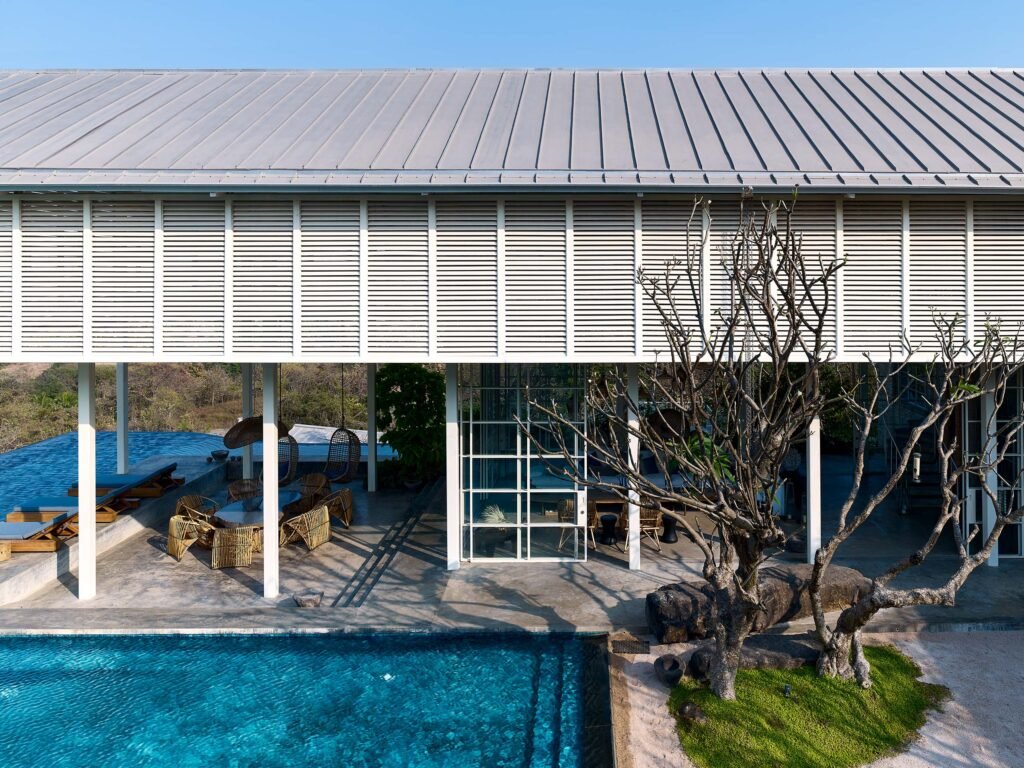
The Ray Villa in Alibag emphasises on the profile of the built form in relation to the hilltop property overlooking the Mumbai bay. Two staggered linear pavilion-like structures, directed towards the view, define the character of the house. They are strong manifestations that act as long spatial telescopes, bringing the distant sea views seemingly closer by.

With a stream running through the house, this retreat in Alibag delicately weaves into the landscape. It alternately opens up and closes itself to the different characteristics of the site. The house is like an organism trying to make most use of its resources and surroundings. With its several limbs, it reaches out into the landscape. Each “limb” makes full use of the views within the site and dramatizes special moments.
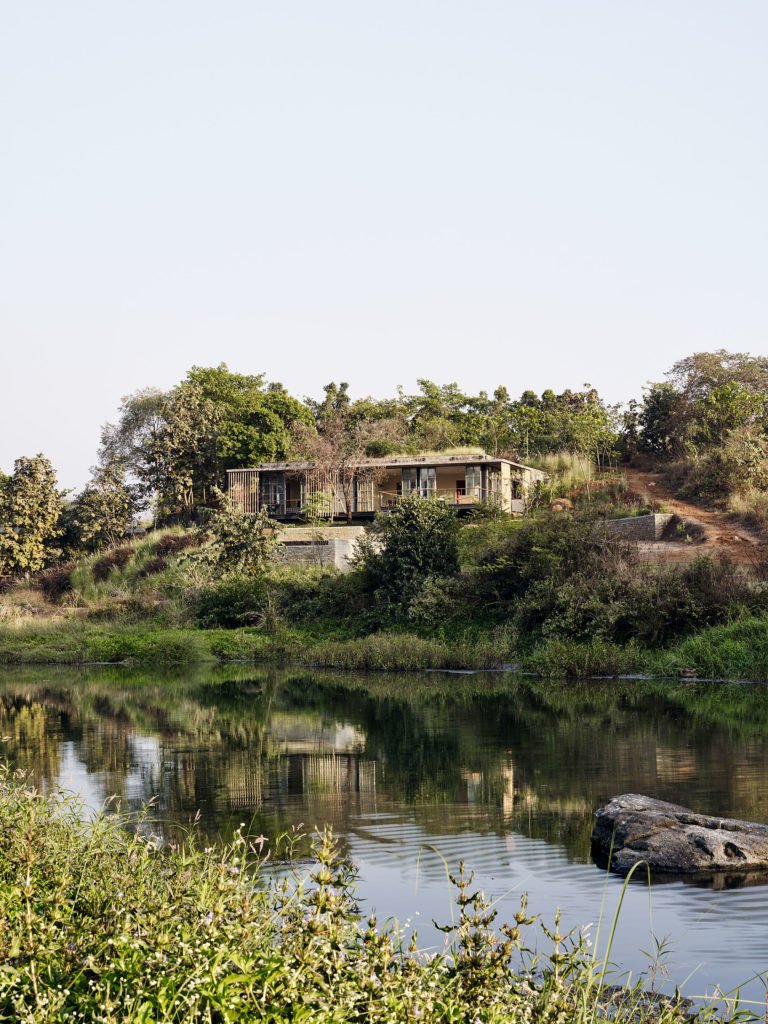
The Riparian House is placed below the crest of a hillock at the foothills of the Ghats near Mumbai. The top of a vegetated roof merges with the top of the hillock, hiding the house while approaching. A bamboo screen surrounding a deep verandah causes an ever-changing pattern of light and shadow throughout the seasons and times of the day, making the Riparian House a ‘sensor’ of light.
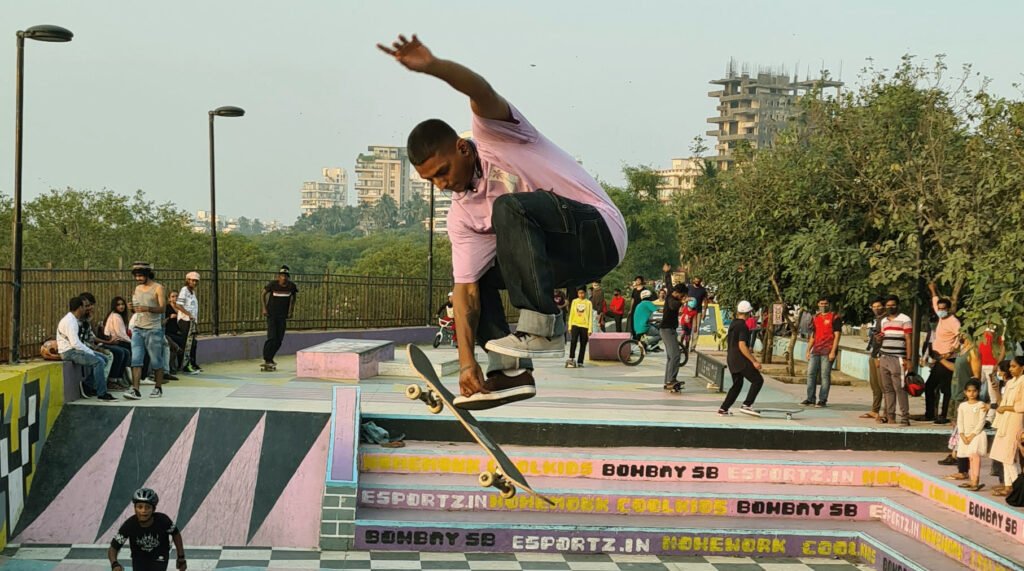
The Carter Road SkatePark adds a vibrant and refreshing new public space to the city of Bombay. It has brought together old and young, beginners and experienced skaters as well. Being the the first skate park in Bombay it has played an important role in attracting new skaters to help grow the skating community of India.

The House in a Beach Garden used to be segregated from its seafront by a tall boundary wall, It separated the property both physically and visually from the much coveted coastline of the Mumbai bay. A missed opportunity. Therefore the first and most important intervention was to lift the garden up 5 feet above the existing level, such that the house, the garden and the top of the boundary wall, were all aligned in one level.
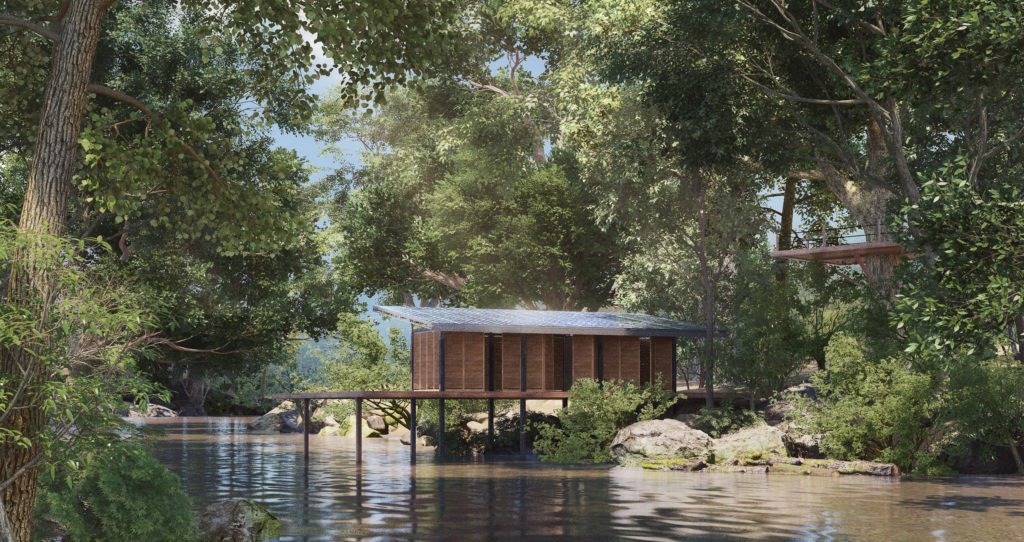
The Vanavihari Eco Resorts are a commendable initiative undertaken by the Andhra Pradesh government. aimed at spreading awareness of the natural environment among travellers. The forest cabins will be located within the natural forest. Since the scenic streams and ponds at the forest reserves attract arboreal and bird wildlife, they make for ideal locations for forest cabins as observatories.

The yoga retreat is conceptualised as an extrusion of its terraced Himalayan landscape. One could imagine that an incidental geological formation pushed up a section of the terraces in the shape of a malformed asymmetrical three winged boomerang. Underneath, above and between the ground plane and the roof, the yoga retreat is a device to experience the landscape in diverse ways.
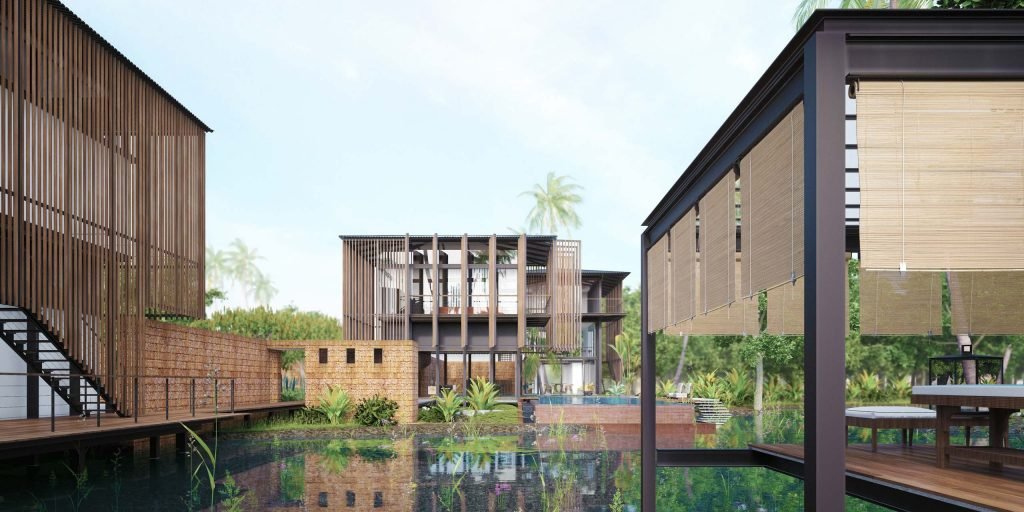
The Wetland Resort in Vengurla aims to revitalise the ecosystem of the site by creating a waterscape with interconnected ponds and waterbodies. Five proposed waterbodies accommodate 16 holiday homes and a boat house. The homes are clustered as stilted pavilions; sometimes on the land and sometimes on water.
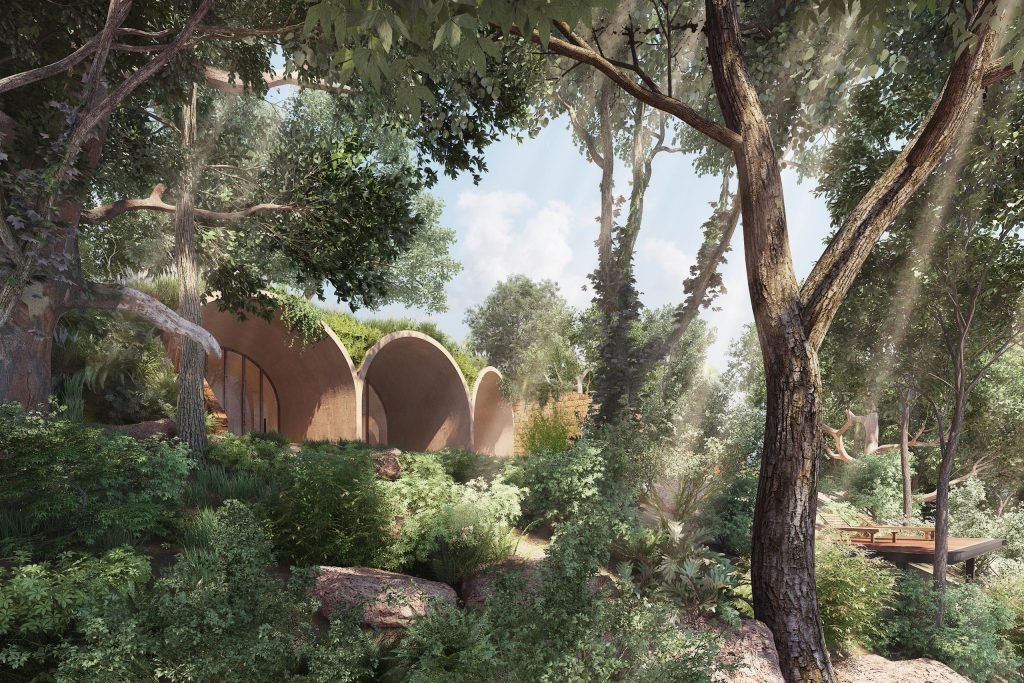
Forest Hills is a quiet picturesque retreat tucked away amidst dense foliage and trees, perching high on top of a mountain overlooking an estuary. Here, 8 underground “cave homes” will be carved into the mountain top. These underground dwellings focus like telescopes to the surrounding views. A staircase gently slopes, as an earth block sculpture, from the plateau in the direction of the homes beneath.
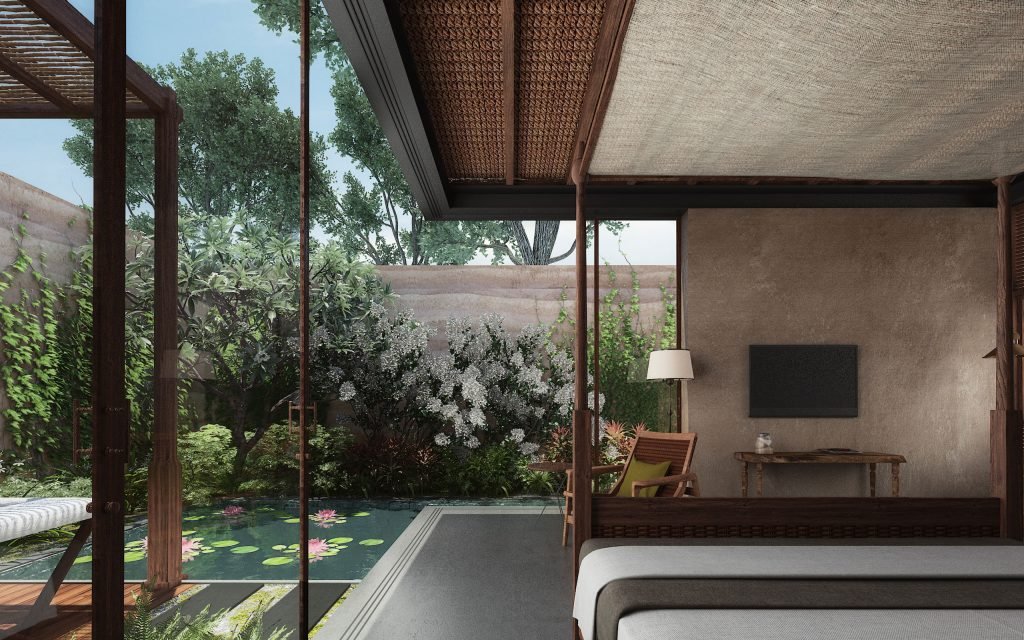
The Mandwa Health Resort is envisioned as a three-dimensionally embossed landscape. It is an architecture of enclosure, where walls define exterior spaces. Guests retreat in private undisturbed courtyard rooms. With ivy spread across the compressed earth walls and water bodies reflecting the sky, the guest rooms extend into the natural environment.
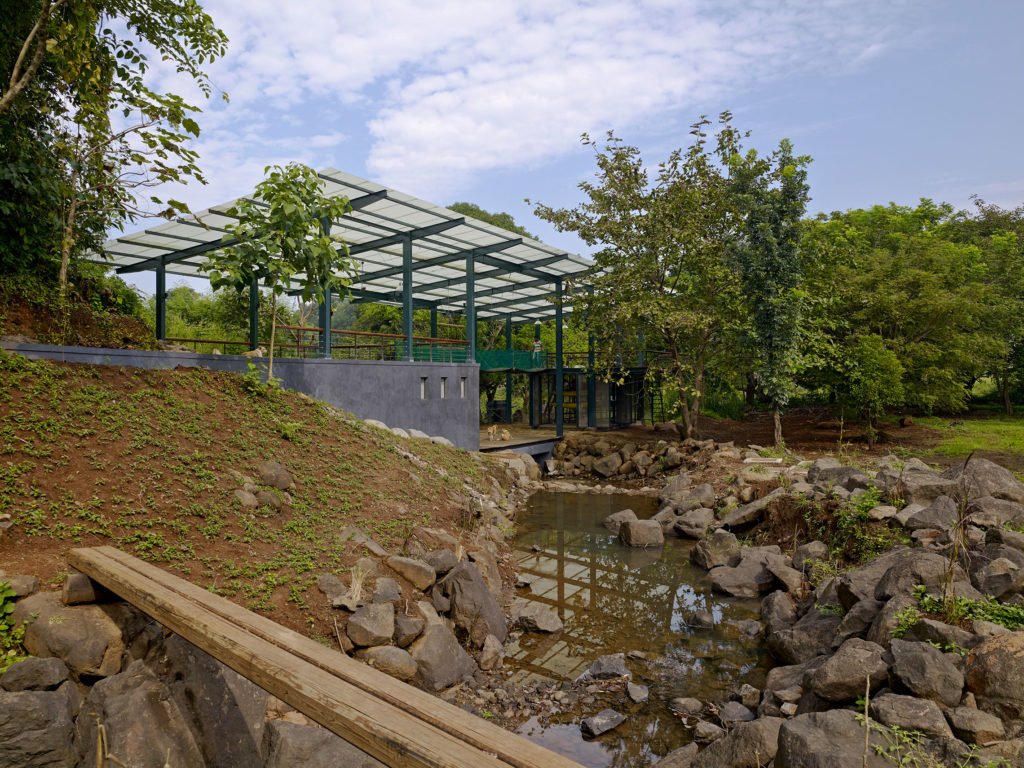
The Magic Bus Learning Pavilion is an interactive building used as a gathering space and play area for underprivileged children who are deprived of places to play in the city. However with a log bridge, a Jacob’s ladder, climbing ladders and a suspension / rope bridge, the building is much more than that. It is a continuation of the challenge course of the Magic Bus Outdoor Learning Campus.
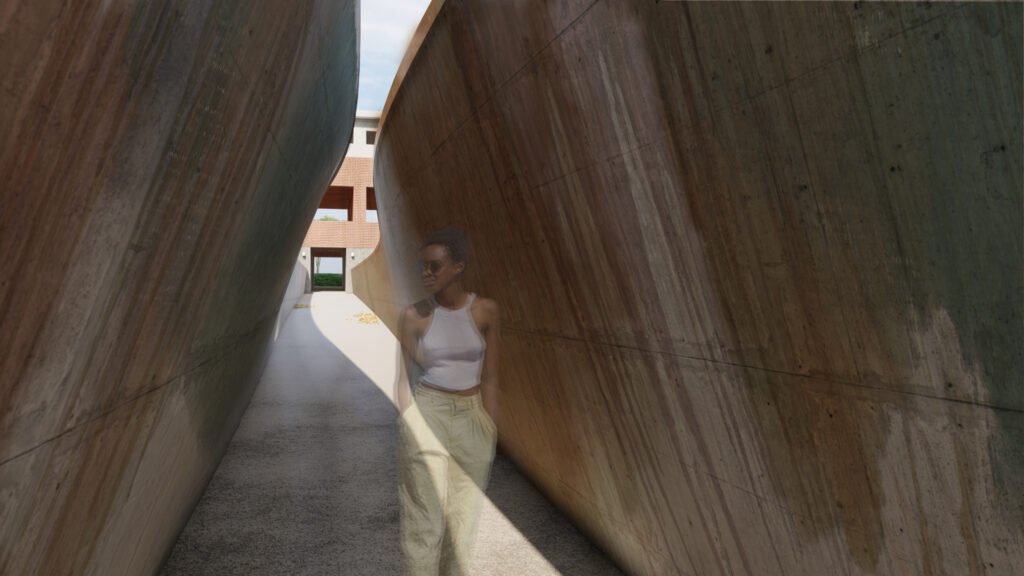
A competition for the transformation of a waterwalk trail into an art installation in the former pool Oud Zwembad in Spiere-Helkijn, Belgium. The waterwalk is a passageway that diverts the existing cycle lane and crosses the entire length of the ecological basin. It creates a void that calls the visitors to enter it, and live an experience which is architectural as much as artistic and environmental, letting nature and the movements of water express the pattern of time on the installation.